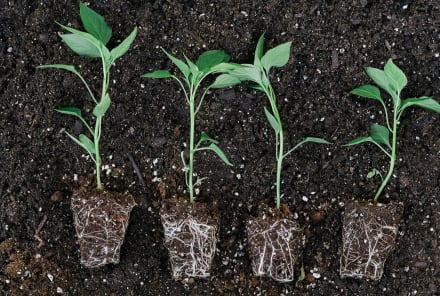Advertisement
Healthy Planet, Healthy You: October 2022 Climate-Health News To Know


Just a one-hour walk in nature is enough to soothe the brain's stress center.
Researchers out of Germany were curious to see how the brain responds to walking in nature versus walking in an urban environment, so they hooked 63 healthy people up to an fMRI machine and asked them to take a one-hour walk through either a forest or a shopping street. They found that activation of the amygdala (the brain region that triggers the fight-or-flight response) decreased after the one-hour nature walk but remained stable after the urban walk. "These results suggest that going for a walk in nature can have salutogenic effects on stress-related brain regions, and consequently, it may act as a preventive measure against mental strain and potentially disease," the study notes. (Read the research here1.)
Air pollution can influence the likelihood of stroke.
Yet another reason to pay attention to air quality: High levels of air pollution were just associated with increased risks of transitioning from being healthy to having your first stroke. Public health researchers out of China came to this conclusion after studying a large database of nearly 400,000 people who participated in the long-term UK Biobank. (Read the research here.)
Access to green space shown to help children transition off ADHD medication.
In a fascinating study that analyzed insurance data to see the rates of reimbursement of ADHD-related medications, researchers found that Dutch children who had access to more green space were more likely to return their meds. The association between green space and medication reimbursement was strongest in the least wealthy neighborhoods (which, unfortunately, also had the least available green space). This finding further strengthens the case for adding greenery in underprivileged areas as an investment in cognition and mental health. (Read the research here2.)
Ozone pollution is changing our plants (and threatening our pollinators).
Pollination makes the world go 'round, but climate change is making it more difficult to do. Ozone—a damaging pollutant spurred by power plants, gas cars, and certain household items—was just shown to change plant biology in a way that makes it harder for pollinators to access precious pollen. Specifically, it seems to damage plant foliage and change plants' flowering patterns. (Read the research here.)
Monthly focus: Celebrate the transition.
In a recent episode of the Matter of Degrees podcast (a must-listen for the climate-curious), co-host Leah Stokes, Ph.D., and her guest Sarah Lazarovic of Rewiring America traded stories about transitioning their homes off fossil fuels.
Electrification doesn't happen overnight, as most of us have stoves, furnaces, hot water heaters, and more that currently run on fossil fuels. But Stokes and Lazarovic presented the long transition as one to celebrate. They even kicked around the idea that people who are able to go totally electric (which will be easier and more accessible in the U.S. in the coming years, thanks to the recently passed Inflation Reduction Act) at home should celebrate the accomplishment for all to see. "We've talked about putting signs in front of people's homes, like how you might put a sign out for a politician. How about putting a sign up that says 'I went all electric?'" Stokes said.
Despite not being a homeowner, I loved the idea of setting a measurable climate goal for yourself—and finding a way to publicly announce once you achieve it to motivate others. After all, making the transition toward cleaner and healthier ways of being is surely something we should be celebrating together.











